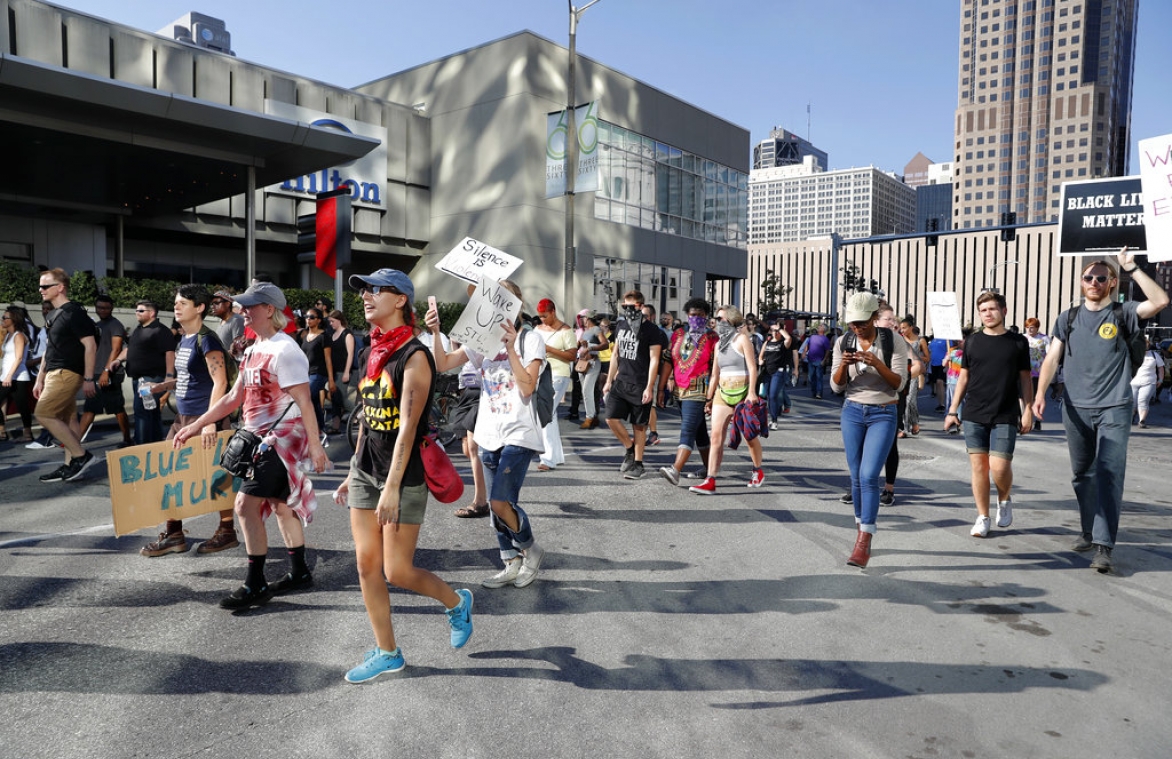A woman who was tear gassed by St. Louis police officers after leaving a protest and walking to her car can continue with her First Amendment civil rights lawsuit, a federal appeals court has ruled.
The 8th U.S. Circuit Court of Appeals ruled that the four named officers on the SWAT team in her complaint were not entitled to qualified immunity, a defense for government officials if they do not violate clearly established law.
Megan Green attended protests in St. Louis on Sept. 15, 2017, demonstrations arising after former St. Louis police officer Jason Stockley was acquitted of first-degree murder charges for shooting Anthony Lamar Smith. As Green was returning to her car, St. Louis Metropolitan Police Department officers in a SWAT armored vehicle tear gassed her, she alleges.
Green filed a lawsuit the next year against 12 officers, all of whom were SWAT members. Her complaint identified four officers whom she was able to confirm were in the armored vehicle when she was tear gassed.
She also sued eight other SWAT members but was never able to confirm whether they were involved in the tear gassing. All 12 officers filed a motion to dismiss based on qualified immunity.
A federal district court rejected qualified immunity for all 12 officers. On appeal, the 8thCircuit affirmed the dismissal of qualified-immunity protection for the four officers Green identified, but not for the other eight.
“Participating in protests to express frustration with a police department is protected First Amendment expression,” the 8th Circuit wrote in its Nov. 1, 2022, decision in Green v. City of St. Louis. “Deploying tear gas towards individuals is an adverse action.”
The 8th Circuit further said deploying tear gas would chill an ordinary person from engaging in further First Amendment-protected activities. As such, the appeals court found that Green had shown a plausible claim of unlawful retaliation, and the court denied a qualified-immunity defense to the four officers she identified.
However, the appeals court granted qualified immunity to the eight other officers because “[t]he complaint did not plausibly allege that the eight officers were personally involved in the violation of clearly established constitutional rights.”
The Free Speech Center newsletter offers a digest of First Amendment and news media-related news every other week. Subscribe for free here: https://bit.ly/3kG9uiJ
David L. Hudson Jr. is a professor at Belmont University College of Law who writes and speaks regularly on First Amendment issues. He is the author of Let the Students Speak: A History of the Fight for Free Expression in American Schools (Beacon Press, 2011), and of First Amendment: Freedom of Speech (2012). Hudson is also the author of a 12-part lecture series, Freedom of Speech: Understanding the First Amendment (2018), and a 24-part lecture series, The American Constitution 101 (2019).

